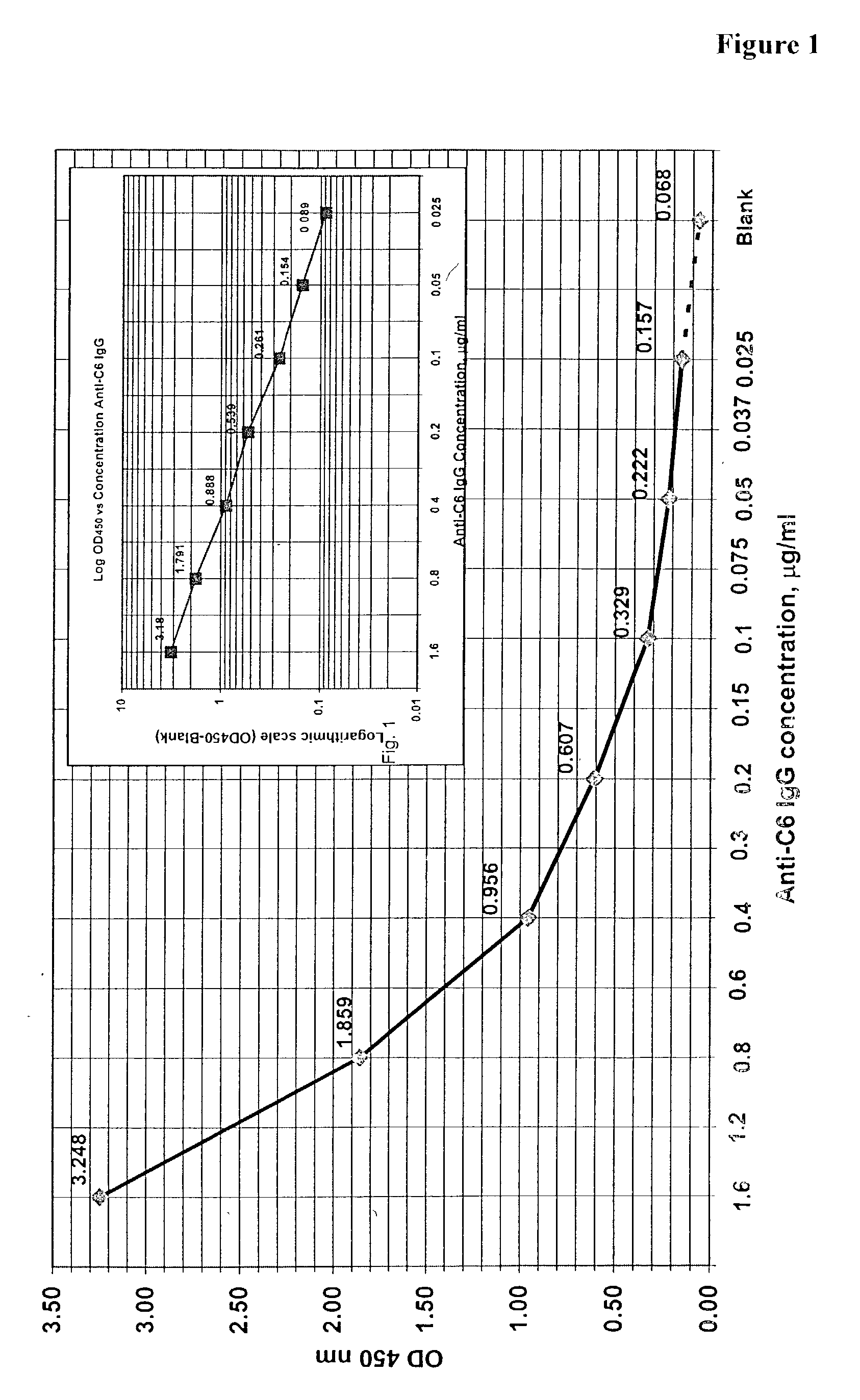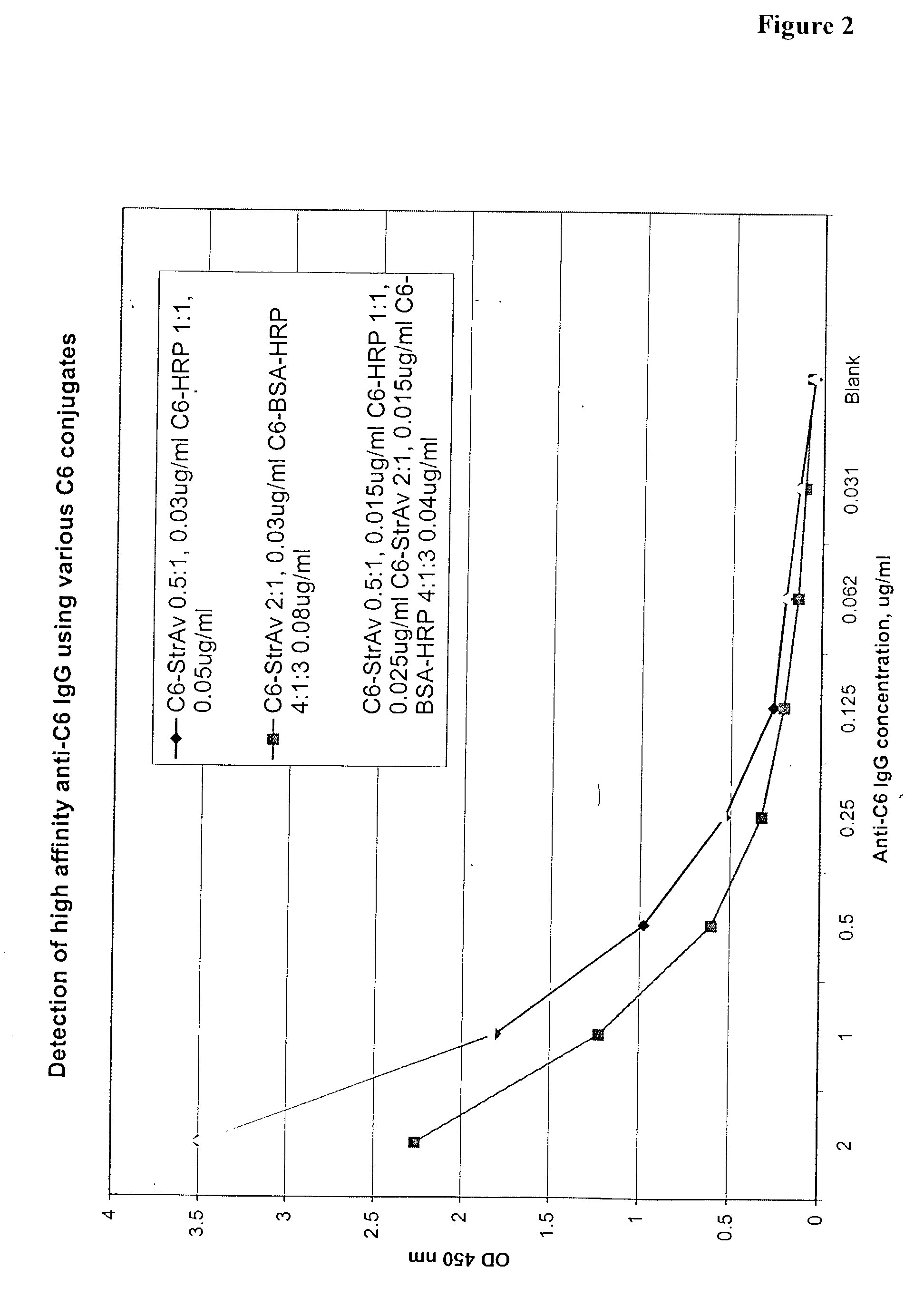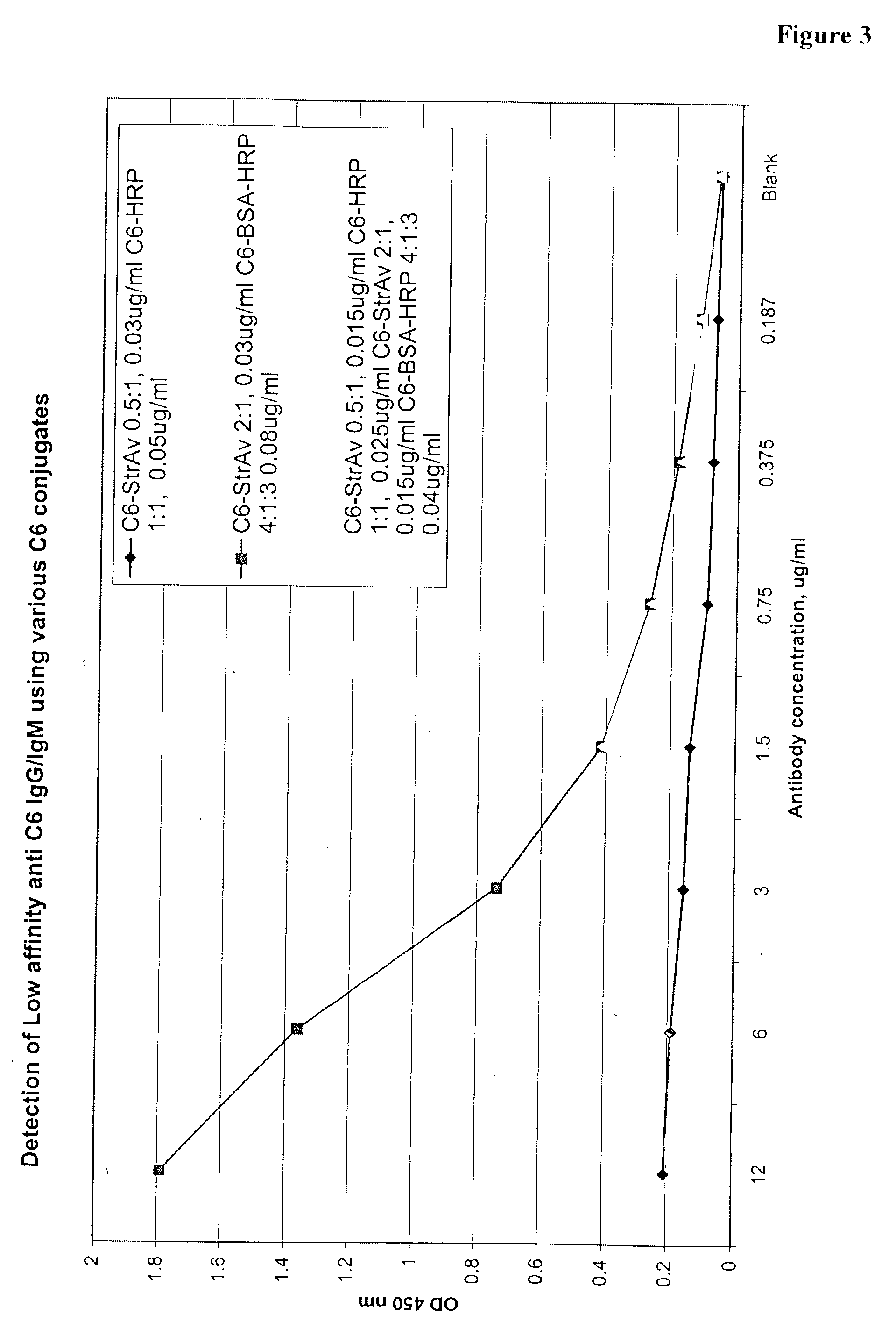Systems and methods for detection of analytes in biological fluids
a biological fluid and system technology, applied in the field of systems and methods for detection of analytes in biological fluids, can solve the problems of reducing detection sensitivity, false positives can arise, and false positives can be obtained
- Summary
- Abstract
- Description
- Claims
- Application Information
AI Technical Summary
Benefits of technology
Problems solved by technology
Method used
Image
Examples
example 1
Procedure for Detection of SH Groups in Peptides and Thiolated Proteins
[0109] The presence of SH groups in peptides, thyolated proteins and products of conjugate synthesis through maleimide-sulfhydril cross-linking, and also the immobilization of peptides on gels were analyzed using known DTNB method in Tris buffer, pH 8.0, using molar absorbance E.sub.412 TNB2-=1.37.times.10.sup.4 cm.sup.-1 M.sup.-1.
example 2
Conversion of Amino Groups of BSA, StrAv and HRP into Maleimide Groups
[0110] Maleimide groups were introduced into BSA (Sigma), StrAv(Scipps Lab) and HRP(Scripps Lab) using GMBS (N-(gamma-Maleimidobutiryloxy)succin-imide N-Succinimidyl 4-maleimidobutyrate) in 0.1 M sodium phosphate buffer, pH 7.5, containing 1 mM EDTA at molar ratio maleimide / protein of 20:1 to 40:1 with dialysis against the same buffer with pH 6.5 as a purification step. For quantitation of the number of maleimide groups, the maleimide-modified proteins were incubated with excess of DTT and after exhaustive dialysis analyzed for presence of thiols in DTNB reaction.
[0111] The average number of maleimide groups introduced per each protein molecule was as follows: BSA-11, StrAv -7, HRP-1.1 (moles / mol protein). Protein concentration was determined spectrophotometrically using adsorption coefficients E.sub.280 nm, 1 cm, 1 mg / ml=0.66 and 3.0 for BSA and StrAv, respectively, and E.sub.403 nm, 1 cm, 1 mg / ml=2.26 for HRP.
example 3
Blocking of SH Groups in Peptides with Maleimide
[0112] To protect Cys-peptides from oxidation and dimer formation, fresh solutions of peptides were modified with N-ethylmaleimide in 0.1M sodium phosphate, pH 6.5, with two-molar excess of maleimide. Maleimide-protected C6 and C10 were used in competition experiments as non-conjugated peptide preparations.
PUM
 Login to View More
Login to View More Abstract
Description
Claims
Application Information
 Login to View More
Login to View More - R&D
- Intellectual Property
- Life Sciences
- Materials
- Tech Scout
- Unparalleled Data Quality
- Higher Quality Content
- 60% Fewer Hallucinations
Browse by: Latest US Patents, China's latest patents, Technical Efficacy Thesaurus, Application Domain, Technology Topic, Popular Technical Reports.
© 2025 PatSnap. All rights reserved.Legal|Privacy policy|Modern Slavery Act Transparency Statement|Sitemap|About US| Contact US: help@patsnap.com



